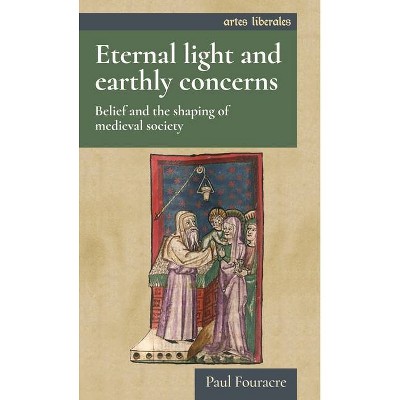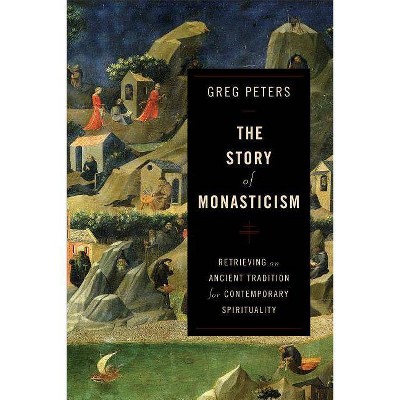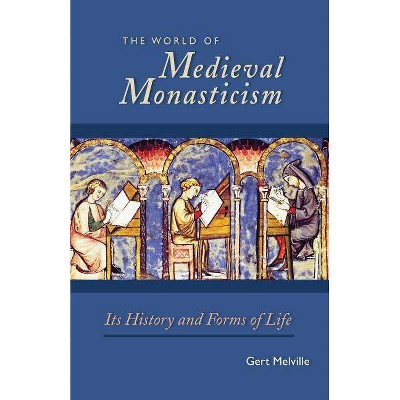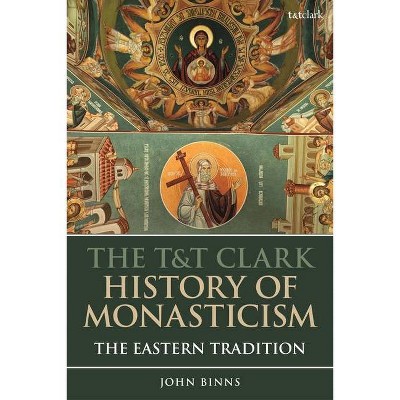Emotional Monasticism - (Artes Liberales) by Lauren Mancia (Paperback)
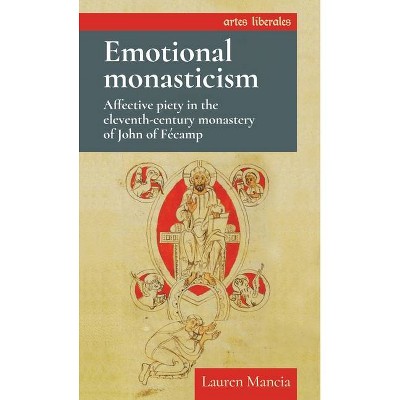
Similar Products
Products of same category from the store
AllProduct info
<p/><br></br><p><b> About the Book </b></p></br></br>Drawing on the devotional culture of John of Fécamp's Norman monastery, <i>Emotional monasticism</i> exposes the monastic roots of medieval affective piety, casts a new light on the devotional life of monks in Europe before the twelfth century and redefines how medievalists should teach the history of Christian devotion.<p/><br></br><p><b> Book Synopsis </b></p></br></br>Medievalists have long taught that highly emotional Christian devotion, often called 'affective piety', appeared in Europe after the twelfth century and was primarily practiced by communities of mendicants, lay people and women. <i>Emotional monasticism </i>challenges this view. The first study of affective piety in an eleventh-century monastic context, it traces the early history of affective devotion through the life and works of the earliest known writer of emotional prayers, John of Fécamp, abbot of the Norman monastery of Fécamp from 1028-78. Exposing the early medieval monastic roots of later medieval affective piety, the book casts a new light on the devotional life of monks in Europe before the twelfth century and redefines how medievalists should teach the history of Christianity.<p/><br></br><p><b> From the Back Cover </b></p></br></br><b>'In this exciting study of Fécamp, Lauren Mancia looks "under the hood" of an apparently ordinary eleventh-century Benedictine monastery. What she discovers of its rich and intense emotional life suggests new contours for the history of medieval "affective piety".'</b> <i>Barbara H. Rosenwein, Professor Emerita, Loyola University Chicago</i> <b>'<i>Emotional monasticism</i> is a ground-breaking work of revisionist history that promises to have a profound influence on the study of Christian devotion in the Middle Ages.'</b> <i>Scott G. Bruce, Professor of Medieval History, Fordham University</i> Historians have long taught that highly emotional Christian devotion, often called 'affective piety', originated in Europe after the twelfth century, and was primarily practiced by communities of mendicants, lay people and women. . <i>Emotional monasticism</i> revises our understanding of its origins, characteristics, and uses in medieval Christianity. The first study of affective piety in an eleventh-century monastic context, this book traces the history of affective devotion through the life and works of the earliest-known writer of emotional prayers, John of Fécamp, abbot of the Norman monastery of Fécamp from 1028 to 1078. It examines John's major work, the <i>Confessio theologica</i><i>, </i> and looks at the devotional programme of Fécamp's liturgical, manuscript, and intellectual culture, relating it to the monastery's efforts at reform. Finally, it examines John's later medieval legacy at Fécamp, throughout Normandy, and beyond. Exposing the early medieval monastic roots of later medieval affective piety, <i>Emotional monasticism</i> reexamines the importance of John of Fécamp's prayers for the first time since his work was discovered, casting new light on the devotional life of monks in Europe before the twelfth-century, and redefining how medievalists should teach the history of Christianity.<p/><br></br><p><b> Review Quotes </b></p></br></br><br>'In this exciting study of Fécamp, Lauren Mancia looks "under the hood" of an apparently ordinary eleventh-century Benedictine monastery. What she discovers of its rich and intense emotional life suggests new contours for the history of medieval "affective piety".' Barbara H. Rosenwein, Professor Emerita, Loyola University Chicago '<i>Emotional monasticism </i>is a ground-breaking work of revisionist history that promises to have a profound influence on the study of Christian devotion in the Middle Ages. Scholars have tended to locate the devotional disposition that we call "affective piety" in movements of mendicant, lay and female spirituality of the later Middle Ages. In this lucid and well-argued book, Lauren Mancia convincingly makes the case that affective piety was already at play in the eleventh century in male Benedictine communities, particularly at the abbey of Fécamp in Normandy, where Abbot John fostered a devotional culture in his community with the aim of the emotional reform of his sinful brethren. Central to the reform was John's lifework, a treatise known as the <i>Confessio theologica</i>. In her study, Mancia delineates with great skill the devotional program of John's emotional reform through an analysis of his <i>Confessio theologica</i>, the influence of a specifically Benedictine culture on its formation, with special attention to John's career and use of manuscripts, the implementation of his reforming agenda at Fécamp, the cultivation of these devotional principles by abbots active in the world and the legacy of the <i>Confessio theologica </i>beyond the monastic milieu of the eleventh century. This book will be of great interest not only to historians of medieval monasticism, but also to a much broader audience of readers interested in the history of premodern emotions and Christian piety.' Scott G. Bruce, Professor of Medieval History, Fordham University 'Mancia gives us a perfect example of the contribution that can be made by the history of emotions and the necessity of exploring this approach, since in seeking to better understand the emotions of the past, not only do historians gain access to new knowledge, they can also question received ideas, as this study does in the area of affective devotion in monasticism. [...] A pleasure to read from start to finish.' <i>Les émotions au Moyen Âge, carnet d'EMMA</i> 'The eleventh century and its monastic forms of affectivity are given much-needed recognition. Lauren Mancia has succeeded in giving John the place he deserves in the history of medieval spirituality. She has made him visible and contributed to our understanding of medieval culture.' <i>The Medieval Review</i> 'With this book Mancia has enriched our understanding and narrative of matters we too casually identify as 'twelfth-century' phenomena...hers is an ingenious effort to weave together matters of the heart and a reignited interior with the realities of monasteries in the fraught world of power and property in eleventh-century Normandy.' <i>Speculum </i><br><p/><br></br><p><b> About the Author </b></p></br></br>Lauren Mancia is Assistant Professor of History at Brooklyn College, City University of New York
Price History
Price Archive shows prices from various stores, lets you see history and find the cheapest. There is no actual sale on the website. For all support, inquiry and suggestion messagescommunication@pricearchive.us

